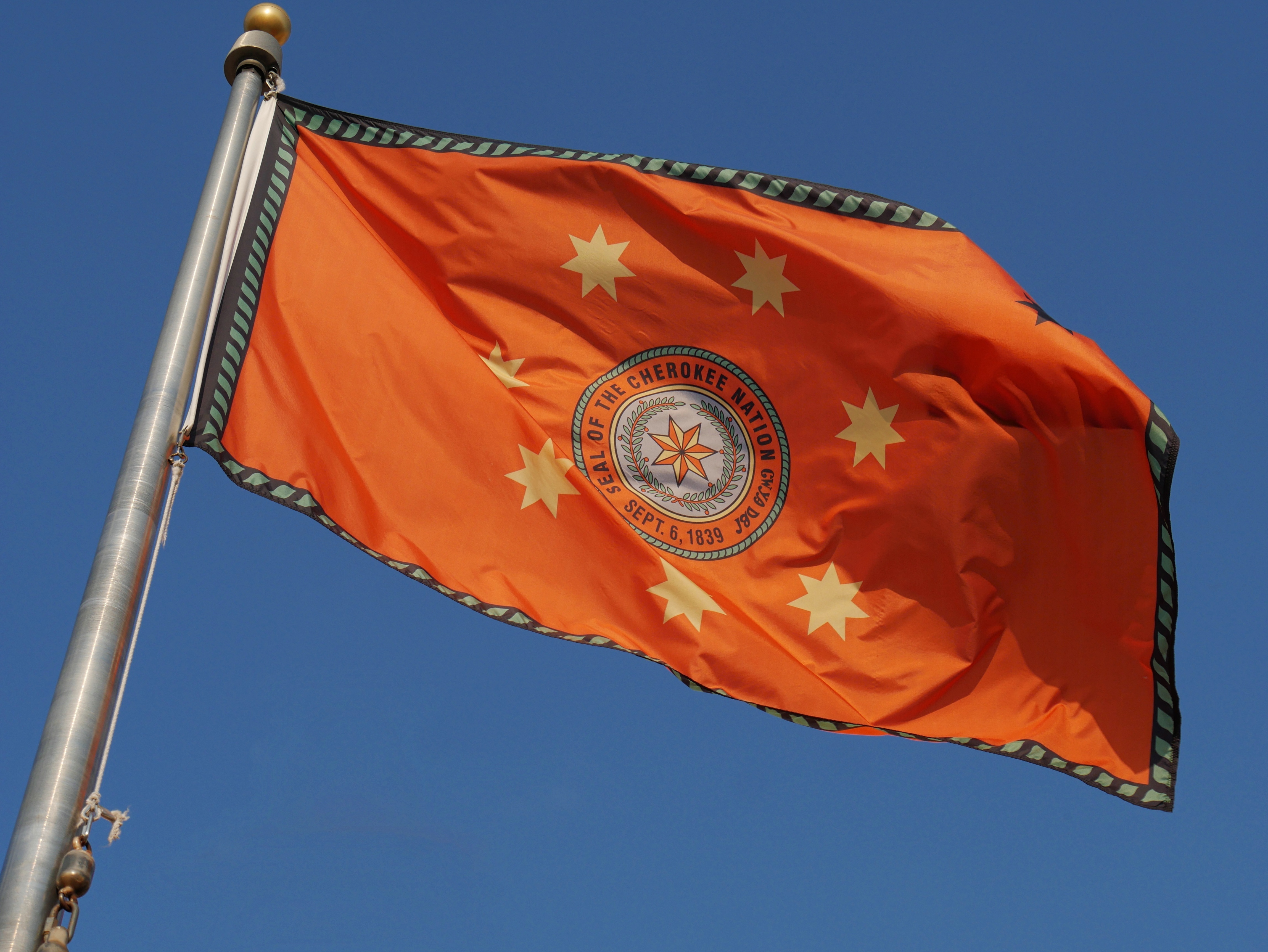
- Details
- By Chuck Hoskin Jr
Guest Opinion. The National Congress of American Indians is the oldest and largest intertribal organization in the country and brings together tribes from across the land to discuss and advocate for issues important to American Indians and Alaska Natives. NCAI has been an important national voice on Native issues since its founding in 1944. Unfortunately, the mission of NCAI has been harmed by the inclusion of groups who are not legitimate Indian tribes. Change is needed, and we have an opportunity to do so at the upcoming NCAI convention.
Under the current NCAI constitution, Cherokee Nation is placed on par with many groups who falsely claim a Cherokee history and culture — frauds from across the country like the United Cherokee AniYunWiYa Nation, the Georgia Tribe of Eastern Cherokees and the Echota Cherokee Tribe of Alabama. Rather than earn federal recognition through a rigorous examination of history, facts and the law, these phony organizations pose as tribes, seek and receive state recognition, and perpetuate a lie. Each year we are forced to spend vital resources fighting against state recognition efforts of groups who pretend to be Cherokee.
 Make A Donation Here
Make A Donation Here
Federal recognition must mean something. It is the basis for our government-to-government relationship that establishes the unique rights and responsibilities of Indian tribes and tribal citizens. NCAI’s embrace of state-recognized tribes lends false legitimacy to groups that undermine our rights, histories and cultures. We must push back against efforts to erode what it means to be a Native American.
A coalition led by the Eastern Band of Cherokee Indians, the Shawnee Tribe and the Ute Indian Tribe has offered a proposal to limit NCAI’s eligibility criteria. Under two separate amendments, voting membership in NCAI will be restricted to federally recognized tribes, and only citizens of federally recognized tribes will be eligible for an individual Indian membership. The additional amendment would ensure NCAI board members and regional vice presidents are citizens of federally recognized tribes.
Cherokee Nation proudly supports the proposed constitutional amendment. A state-recognized tribe is not an Indian tribe. And a member of one of these groups is not an Indian.

In my oath as Principal Chief, I swore to “do everything within my power to promote the culture, heritage, and traditions of the Cherokee Nation.” The responsibility now compels me to defend our tribal constitution, our sovereignty and our history, and to speak out against any policy that undermines our government and our people. The current NCAI constitution is such a policy.
In the coming days, we will tell NCAI that it’s no longer acceptable to place state-recognized groups on equal ground with genuine Native American tribes. I call on tribal leaders from across the country to stand with us and enact this needed change.
If NCAI persists in keeping groups posing as tribes on par with federally recognized tribes, we may be at a crossroads. Federally recognized tribes will need to consider whether NCAI can remain a viable organization able to protect, defend and advocate for the interests of actual tribes. But I remain hopeful that our proposed change in NCAI’s constitution will position it to be stronger than ever.
Chuck Hoskin, Jr. is the principal chief of the Cherokee Nation.
More Stories Like This
Building a World-Class Health System Through Data-Driven StrategyWe're Still Here: Why It's Still a Good Day to Be Indigenous
Christopher Columbus Day! No Shame, No Guilt, No Conscience!
Columbus and His Day
Protecting the Past Guides Our Future
Help us tell the stories that could save Native languages and food traditions
At a critical moment for Indian Country, Native News Online is embarking on our most ambitious reporting project yet: "Cultivating Culture," a three-year investigation into two forces shaping Native community survival—food sovereignty and language revitalization.
The devastating impact of COVID-19 accelerated the loss of Native elders and with them, irreplaceable cultural knowledge. Yet across tribal communities, innovative leaders are fighting back, reclaiming traditional food systems and breathing new life into Native languages. These aren't just cultural preservation efforts—they're powerful pathways to community health, healing, and resilience.
Our dedicated reporting team will spend three years documenting these stories through on-the-ground reporting in 18 tribal communities, producing over 200 in-depth stories, 18 podcast episodes, and multimedia content that amplifies Indigenous voices. We'll show policymakers, funders, and allies how cultural restoration directly impacts physical and mental wellness while celebrating successful models of sovereignty and self-determination.
This isn't corporate media parachuting into Indian Country for a quick story. This is sustained, relationship-based journalism by Native reporters who understand these communities. It's "Warrior Journalism"—fearless reporting that serves the 5.5 million readers who depend on us for news that mainstream media often ignores.
We need your help right now. While we've secured partial funding, we're still $450,000 short of our three-year budget. Our immediate goal is $25,000 this month to keep this critical work moving forward—funding reporter salaries, travel to remote communities, photography, and the deep reporting these stories deserve.
Every dollar directly supports Indigenous journalists telling Indigenous stories. Whether it's $5 or $50, your contribution ensures these vital narratives of resilience, innovation, and hope don't disappear into silence.
 The stakes couldn't be higher. Native languages are being lost at an alarming rate. Food insecurity plagues many tribal communities. But solutions are emerging, and these stories need to be told.
The stakes couldn't be higher. Native languages are being lost at an alarming rate. Food insecurity plagues many tribal communities. But solutions are emerging, and these stories need to be told.
Support independent Native journalism. Fund the stories that matter.
Levi Rickert (Potawatomi), Editor & Publisher
